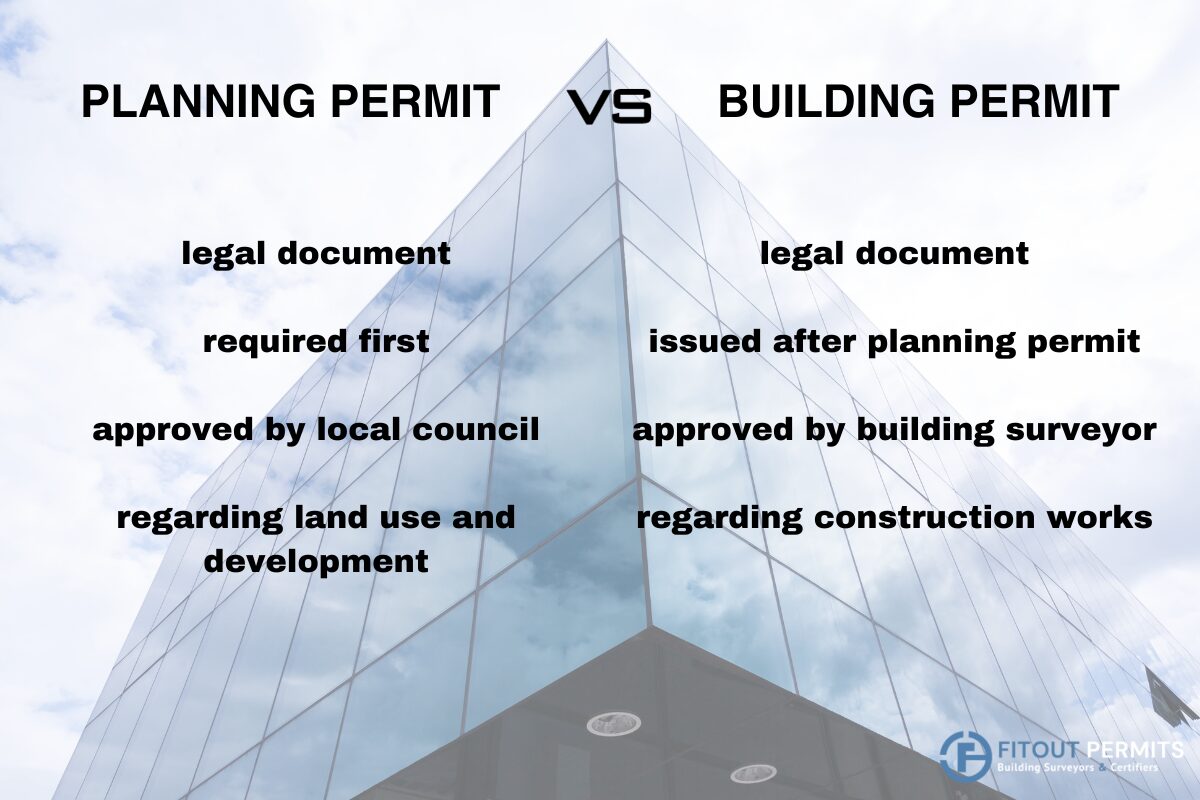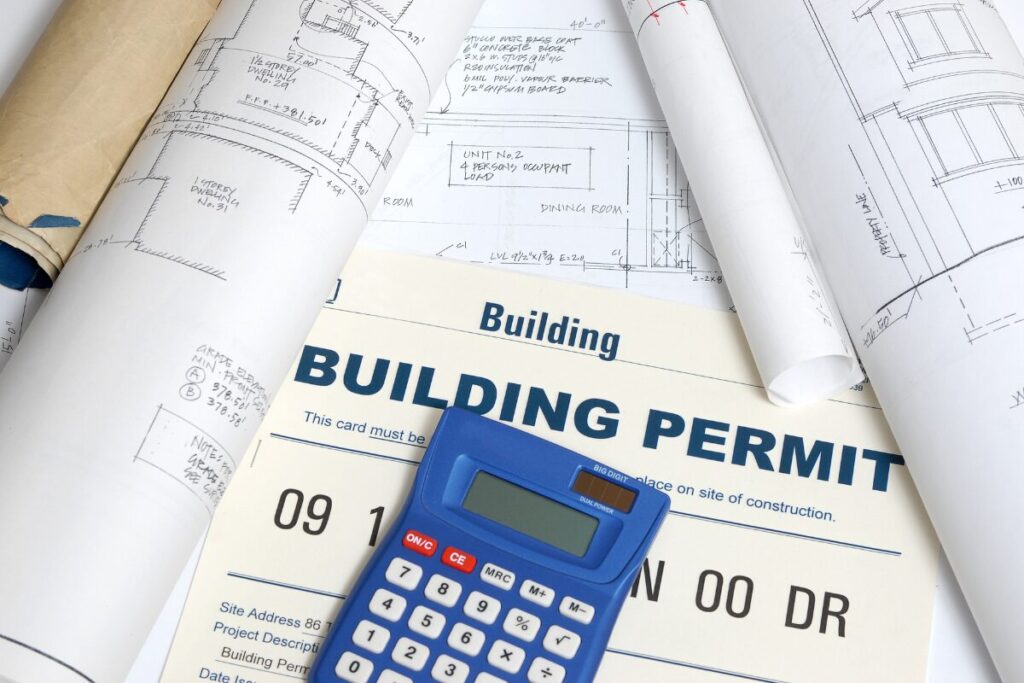Planning permits vs building permits… what exactly is the difference?
This is one of the most common questions thrown at building surveyors on a regular basis. And it is a good question because it’s absolutely essential to clarify the difference between the two permits. This allows you to understand exactly what you need to make sure your project complies with regulations.
Knowing the differences also makes the application process for either one of the permits (or both) much easier. That then lends to a smoother project… which is the ideal result for property owners and developers alike. In this article, we’ll discuss everything to do with planning permits vs building permits.
What is a planning permit?
A planning permit is a legal document provided by a local council. This permit gives permission for land to be used and developed in a certain way. For example, if a developer intends to build a house or multiple units on a plot of land. A planning permit may also be required for a new home, a renovation or extension, or when building a new structure or dwelling on an existing property.
Once you receive a planning permit, it does not necessarily mean that you can move forward with the construction or renovation work. For this, you will likely need a building permit. You must, however, have a planning permit before you can obtain a building permit, though you may apply for both permits at the same time.
How to apply for a planning permit
To apply for a planning permit, you will need to contact your local council. You will be required to fill out an application form and include plans and conditions that meet your state or local council’s planning requirements. Once the relevant department has received and assessed your application, they will approve your planning permit.

What is a building permit?
A building permit is more about the process of executing the planned works. This is a legal document that confirms that the planned works are safe and compliant with the relevant building codes and laws. A permit ensures that the project will be carried out to meet building standards as stipulated nationally and by state building authorities.
A building permit is required before any work takes place, and hefty penalties can apply if this work occurs without the right permits. When a building permit has been approved and issued, it usually signals that you may begin work on your project.
How to apply for a building permit
You will need to apply for a building permit through a licensed building surveyor. You’ll be required to fill out the application form, attach all relevant documents, including drawings and planning permits, and submit the form. The surveyor will then assess your application. If any other information is required, they will let you know. If not, your application will be approved and your building permit will be issued.
Planning permit vs building permit: the key differences
Let’s summarise the key differences between planning permits and building permits.
- A planning permit is generally required before a building permit is issued.
- A planning permit is approved by the local council, while a building permit must be obtained through a licensed building surveyor.
- A planning permit is about land use and development, while a building permit pertains to the intended works themselves.
- Some projects may require one permit, but not the other.
Different states and local councils may have different rules about permits. Therefore, it’s essential to conduct in-depth research and get expert advice where possible. A licensed building surveyor will be able to give you clear-cut information about the different types of permits and explain how they can be obtained. This makes it much easier to get a good understanding of planning permits vs building permits.
At Fitout Permits, our team of experienced surveyors is always ready to help. We work with clients on a range of projects, all over Australia. Contact us for more information today.




